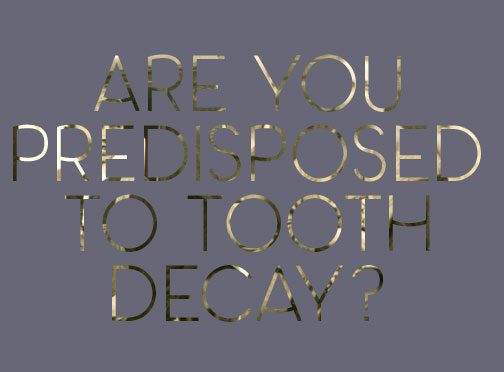How well we brush our teeth isn’t the only predictor of good oral hygiene. Genetics and can also play a role in how healthy your mouth is, regardless of brushing and flossing habits.
How Genetics Affect Oral Hygiene
Your mouth plays host to a variety of bacteria. Most of the bacteria found in your mouth is healthy, and they help break down food and keep your mouth balanced with helpful enzymes and acids. However, there is one kind of bacteria called Streptococcus mutans which will increase your risk for tooth decay.
Streptococcus mutans creates a more acidic environment in your mouth, which wears down on the enamel of your teeth quicker. This causes the surface of your teeth to be more vulnerable to decay.
The shape of your mouth and teeth can also have an impact on tooth decay. If you’ve inherited crooked or crowded teeth, it can make it even more difficult to clean those hard to reach places, no matter how often you brush or floss. That’s why tooth straightening and extractions can be so important in promoting good dental health.
Preventing Tooth Decay
So, right about now you’re feeling like your mouth is against you having great oral hygiene. That isn’t the case, however. Here are some tips for taking extra special care of your teeth if you think you may be susceptible to decay.
Ways to Prevent Tooth Decay:
- Floss twice per day
- Ask about additional fluoride treatments
- Chew sugar free gum after meals
- Drink water after meals
- Wear a nightguard if you have bruxism
- Use mouthwash

